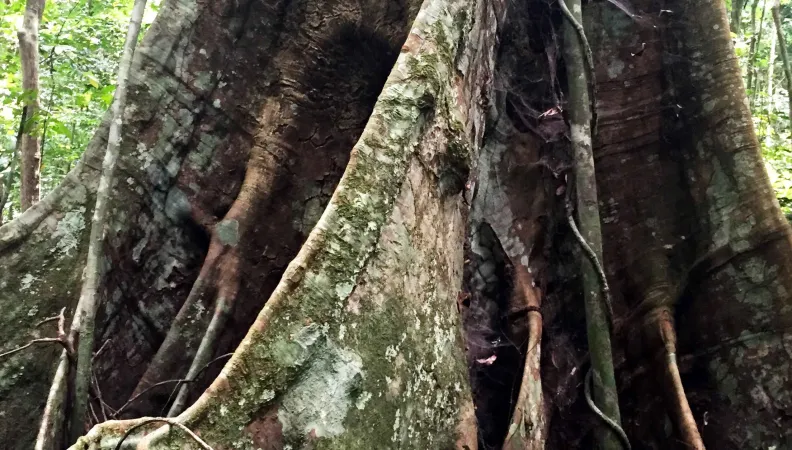Share the page
Impact Evaluation of Forest Management Methods on Deforestation in the Congo Basin

-
Project start date
-
2017Status
Ongoing
-
Project end date
-
2019
-
Project duration
-
1 year and 10 months
-
Country and region
-
Location
-
Cameroun, République Centrafricaine, Congo, Gabon
-
Research program
A variety of forest management methods aims at a sustainable use of forest ressources. These methods vary depending on how they restrict access to forestry resources (conservation versus extraction) and the type of agent whose access is being monitored (communal or community forests, etc.). This evaluation seeks to estimate and compare the relative effectiveness of the main forest management methods on deforestation in the Congo Basin.
Context
The Congo Basin is home to the second-largest tropical forest area after the Amazonian Forest. The main forest management methods that are legally recognized there are logging concessions, mining permits, agricultural plantations, and protected areas. Since the 1990s, AFD has been supporting the principles of sustainable management of commercial forests, as provided for within the implementation of Forest Management Plans (FMPs). These principles seek to guarantee preservation of wood resources, conservation of biodiversity, and local socio-economic development.
In 2012, an evaluation run by AFD documented the relevance of this strategy and the challenges made to its sustainability. But because of the lack of sufficient data, the effectiveness and impact of these approaches have not been studied. Furthermore, the literature on the effectiveness of FMPs or of certification to fight against deforestation is scant with mixed results. Despite this, AFD and the FFEM have supported protected areas, which, according to existing and convergent study results, have effects that are generally positive, though weak, in deforestation matters.
Goal
The core issue of the evaluation is the measurement of impacts of the various forest management methods adopted in the forests of the Congo Basin on deforestation rate. The management methods taken into consideration are logging concessions, logging concessions that have a substainable forest management plan, logging concessions with FSC certification, protected areas, forests under community management, and forests without any particular status.
Method
This impact evaluation has been made possible thanks to the recent production of high resolution maps of forest cover in Cameroon, Central African Republic, Congo, and Gabon in 1990, 2000 and 2010. Produced with the support of AFD and the FFEM, these maps received tacit validation from the national authorities. Furthermore, the World Resource Institute (WRI) has made available forest atlases that record geo-referenced data on the location of perimeters for the logging concessions (including those under FMPs or certified), protected areas, and community forests. These sources include the dates they were implemented and supplementary information on their status. By cross-referencing these two data sources while taking into account contextual data on forest management units, this evaluation will produce detailed analyses on the impact of forest management methods on deforestation. This evaluation is being carried out by IRD’s joint research unit UMR Espace-DEV. It began in May 2017.
Contact : Kenneth Houngbedji, evaluation officer (houngbedjik@afd.fr)
